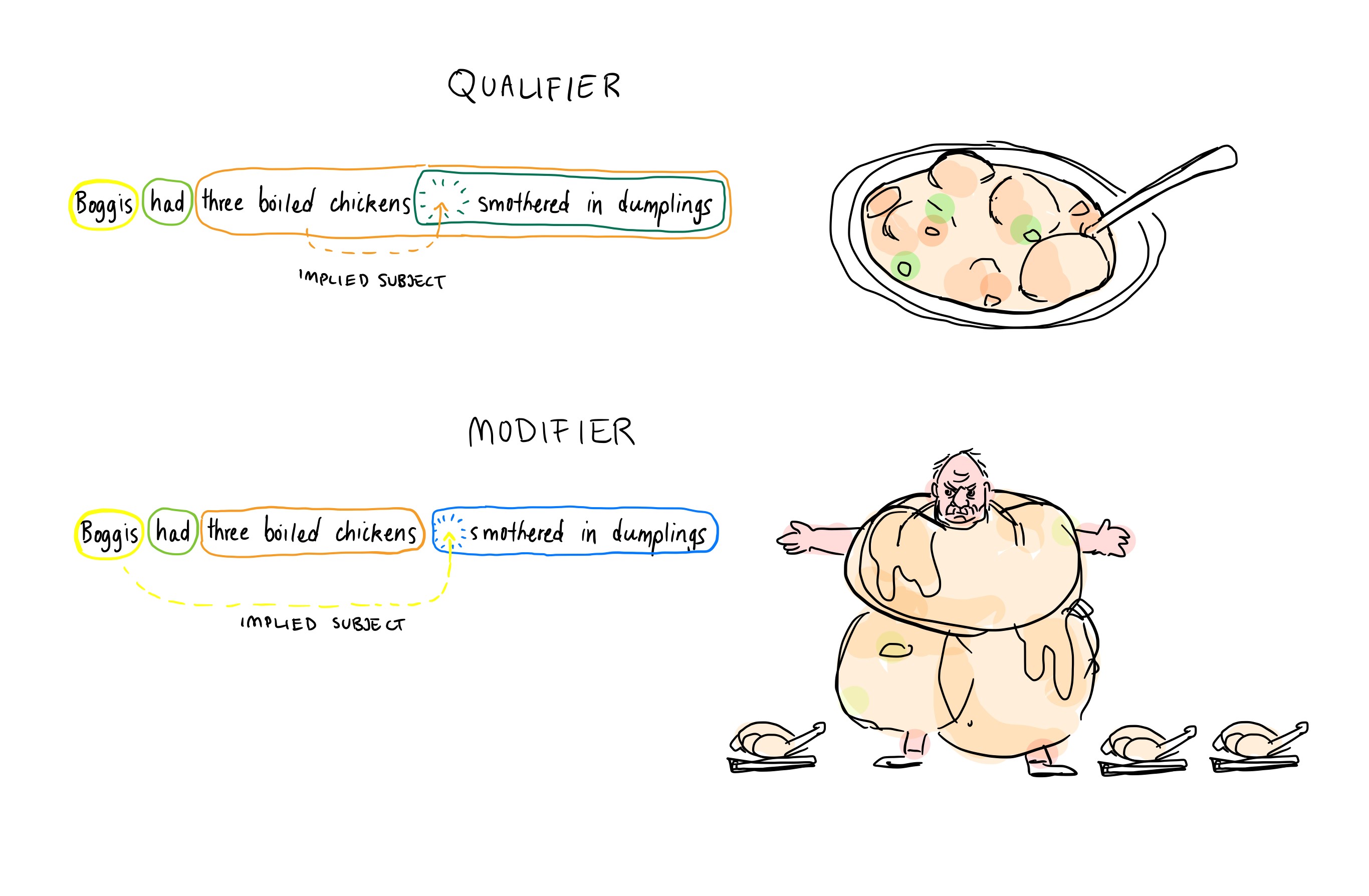A key feature of supporting clauses is that they are always playing a role in another clause.
The reason the Boggis sentence is ambiguous is because the supporting clause ("smothered in dumplings") can play two different roles:
- It could be a qualifier to the noun group (“three boiled chickens…”).
- Or it could be a modifier to the main clause (“Boggis had three boiled chickens…”).
In the second case, the subject of the main clause (“Boggis”) is carried across the noun group and into the supporting clause at the end.

This snippet has very strong context (i.e. Boggis is eating chicken, and dumplings is a side dish that goes with chicken), so most people will get that the chickens are the ones smothered in dumplings.
However...
If we wanted to be clear that the chickens were smothered in dumplings
As we said earlier on this page, we could get rid of the ambiguity completely by using a relative pronoun:
- Boggis had three boiled chickens that were smothered in dumplings.
This works because relative pronouns force us to interpret a supporting clause as the qualifier of a noun group.
If we wanted to be clear that Boggis was smothered in dumplings
If we wanted readers to know that Boggis was the one smothered in dumplings, we could take advantage of the fact that modifiers can move around in a sentence without changing their meaning (a lot like adverbs) and move the supporting clause to another position in the clause:
- Smothered in dumplings, Boggis had three boiled chickens.
No more ambiguity.
Remember: While modifiers can move around in a clause without changing their meaning, qualifiers always come after the person/thing that they qualify.

